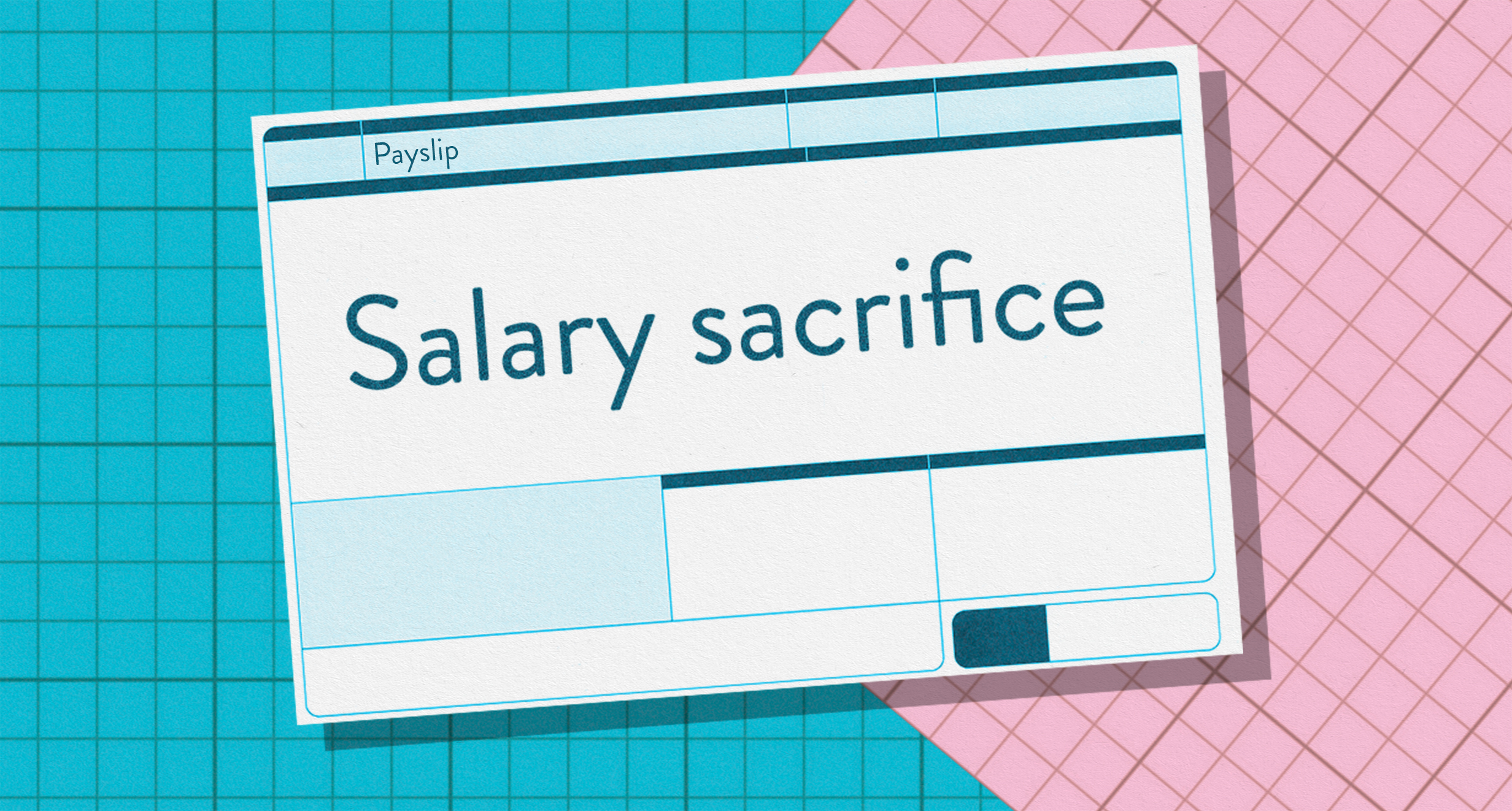What is salary sacrifice?
A 5 minute read

When you put money into your pension, it comes out of your salary. There are a couple of ways to do this. One way is called salary sacrifice.
Some employers might call it salary exchange, or even SMART.
It goes a little something like this.
You decide upon a percentage of your salary or a fixed figure to contribute to your pension every month. If you choose a percentage, then your contribution will rise in line with any salary increases you get down the line.
The big benefit of salary sacrifice, however, is that your salary is lowered. It sounds backwards, but it does exactly what it says on the tin. By sacrificing part of your salary to your pension, you could pay less income tax and less National Insurance because you don’t see as much income.
And this also means, your take home pay might actually go up.
Employers save too on National Insurance, and some may even add their National Insurance savings into your workplace pension as well, giving your pot a helpful boost.
Let’s take a closer look:
If you earn £30,000 before tax and contribute 5% of that salary to your pension through salary sacrifice, then you’d pay £1,500 into your pension. If your employer was contributing the minimum of 3%, they’d be paying £900 into your pension, giving you £2,400 total going into your pension pot.
Basically, because you ‘give up’ part of your salary to go into your pension instead, your salary changes to £28,500 - and that’s what you’ll be taxed on. Instead of the £30,000 amount.
As a 20% taxpayer, you’d pay £3,186 per year in income tax and £1,911.60 in National Insurance contributions in the 2023/2024 tax year. Leaving you with £23,402.40 take home pay and (as we mentioned earlier) £2,400 going into your pension pot.
But what if you weren’t saving through salary sacrifice?
Without salary sacrifice, you’d actually save the same amount into your pension pot. Based on the same percentages as the above example, on £30,000, you’d save £2,400 a year into your pension. £3,186.00 of tax would come out of your take-home pay over the 12 months, plus, you’d pay £2,091.60 in National Insurance in the 2023/2024 tax year without salary sacrifice.
Leaving you with £23,222.40 take home pay. £180 less than the salary sacrifice example.*
Important note: Figures not suitable for use for Scottish taxpayers.
And, it should be said, the salary sacrifice example doesn’t include employers passing on their National Insurance savings to your pension pot. If your employer offers this, it would boost your pension pot even further.
It goes to show that you can really benefit from a salary sacrifice scheme by going backwards to go forwards.
So, is salary sacrifice worth it?
Salary sacrifice is a great saving scheme which means you’ll benefit from keeping hold of more of your earnings and paying less tax.
Are there any drawbacks?
You can’t use salary sacrifice if you’re on a low income. This is because salary sacrifice could result in your income falling below the national minimum wage.
There can also be an impact on salary-based benefits and your ability to borrow money. Again, this is because salary sacrifice leads to a lower overall income. It could have a knock-on effect on the following:
- life insurance
- mortgage borrowing
- statutory maternity pay
- credit card borrowing limits
- The State Pension
- Any benefits
If you’re unsure about where salary sacrifice leaves you, then it’s always a good idea to speak to your employer - you never know what treasure trove of information you might dig up to really bolster your budget. And remember, you don’t have to take part in salary sacrifice if you don’t want to.
Retirement saving should feel accessible and secure to everyone - so rest assured that there is a way to save without leaving your monthly budget out to dry.
*Figures calculated using Legal and General's Salary Sacrifice calculator and are correct as of May 2023.
DO NOT EDIT THIS BOX UNLESS YOU'RE NOEL

